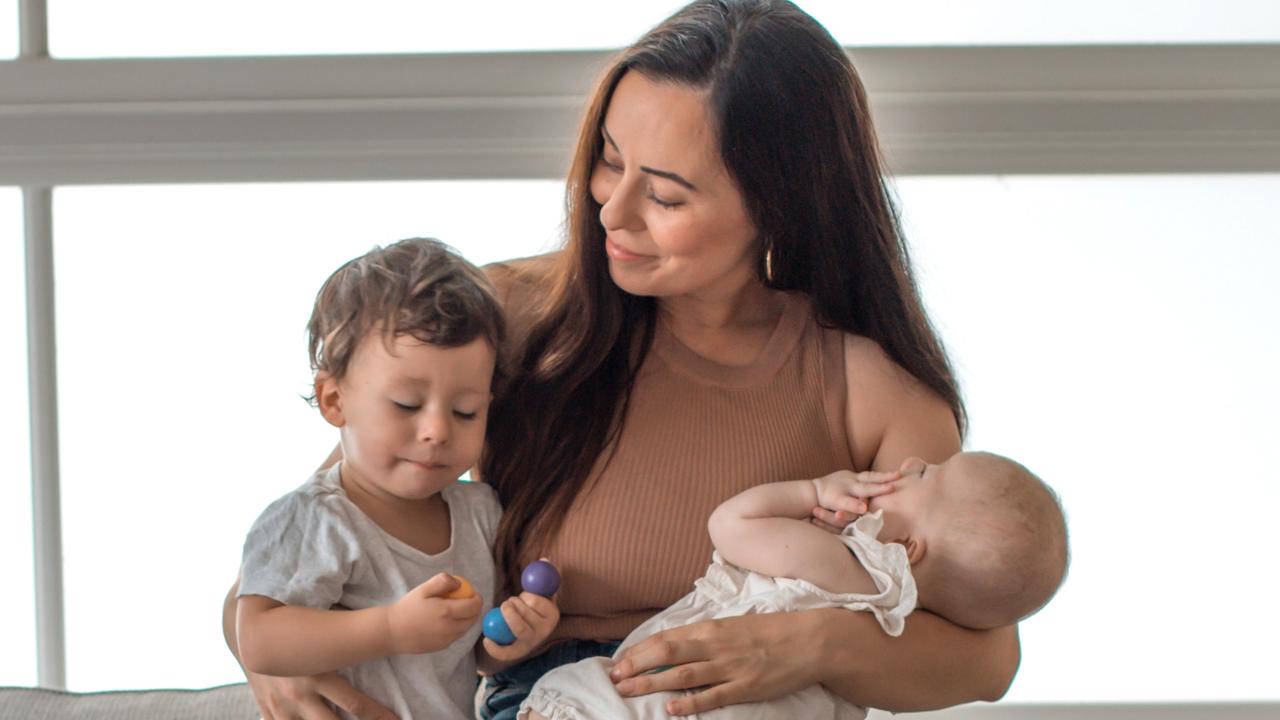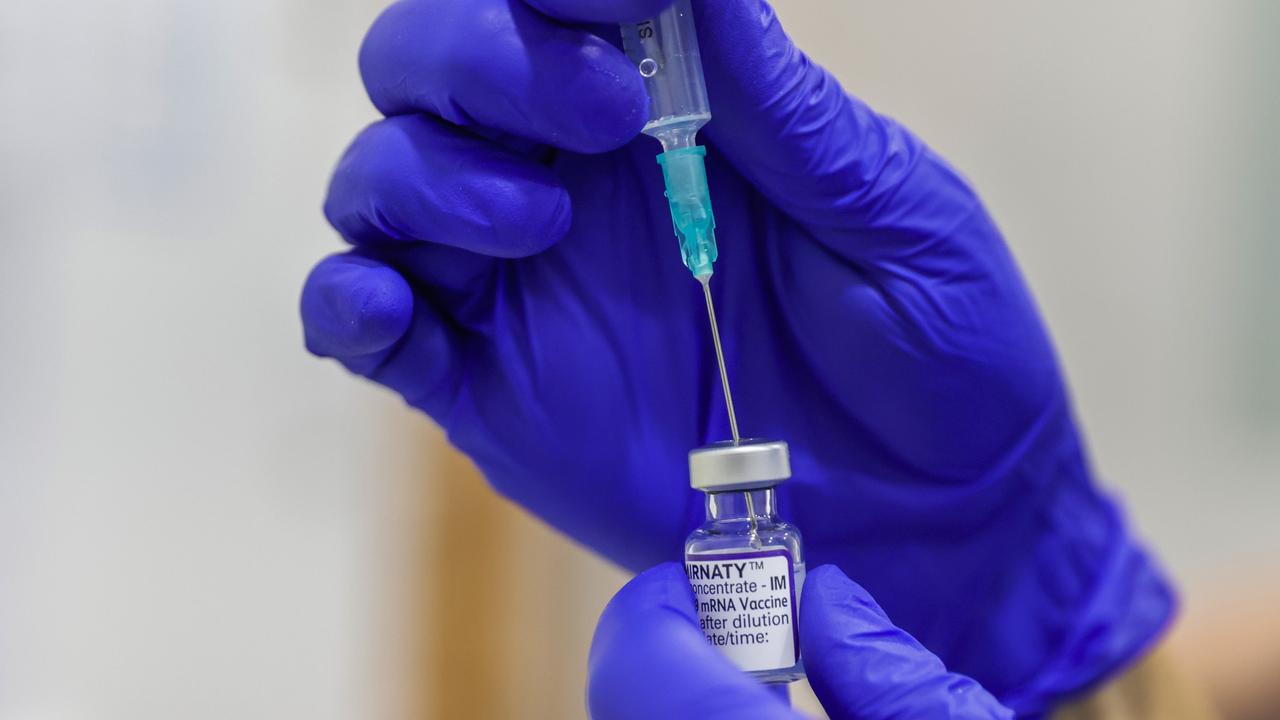Paramedics fighting Covid fear bringing Delta home to their families
Jason Ryan is proud to be a frontline soldier in the war on Covid, but the paramedic knows his repeated exposure to Delta could be disastrous for his vulnerable son Joshua.
NSW Coronavirus News
Don't miss out on the headlines from NSW Coronavirus News. Followed categories will be added to My News.
Paramedic Jason Ryan saves lives for a living, but harbours a deep fear that his role as a frontline soldier in the war on Covid could bring the deadly virus into his home.
Mr Ryan, 46, is fully vaccinated and strictly adheres to every cross-infection protocol as he works Sydney’s hot zones with fellow paramedic Naomi Batten.
But he knows his repeated exposure to the Delta variant could inadvertently bring the disease into his Western Sydney home and infect his vulnerable son Joshua.
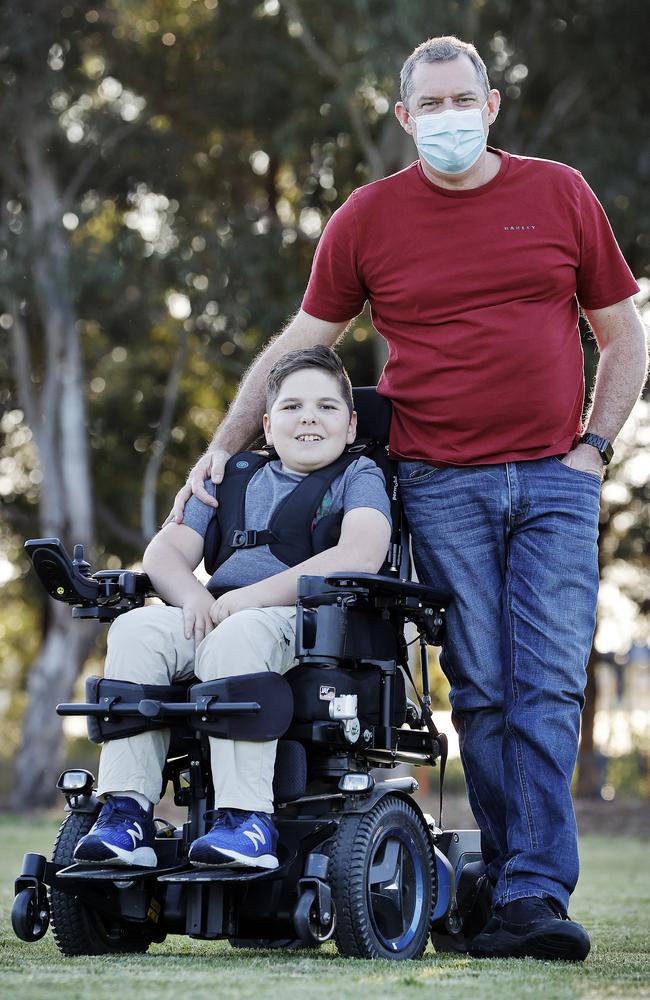
“He’s quite fragile,” Mr Ryan said. “I fear him getting a cold, I’m not sure what would happen to him with Covid.”
Joshua, 9, has spinal muscular atrophy, a rare neuromuscular condition that means Covid could be devastating.
“My son is quite susceptible,” said Mr Ryan.
“Bringing Covid home would not be ideal.”
During the first wave of the pandemic last year, Mr Ryan and Ms Batten dealt with just one or two cases of Covid.
Now it’s an exceptional shift for the crew of Ambulance 1308 from Blacktown Superstation if they don’t have at least one positive patient — and they must treat every call-out as a potential infection.
Despite soaring vaccination rates, Premier Gladys Berejiklian has predicted NSW hospital admissions will peak in coming weeks.
Last week when The Saturday Telegraph was given exclusive access by Ambulance NSW to document the demands on frontline workers in Sydney’s most infected suburbs, the paramedics said parts of the state’s health system were already at “breaking point”.
The veteran paramedics’ 12-hour shift ended with a 2½-hour wait at Westmead Hospital to offload a man in his 60s who was struggling to breathe.
This time, spent in full PPE in the cramped back of their ambulance with the Covid-positive patient, was followed by deep-cleaning their rig, a sanitisation that now happens after every transport.
“Although we’re not doing as many jobs, it’s far more tiring than it was before,” Mr Ryan said of the work.
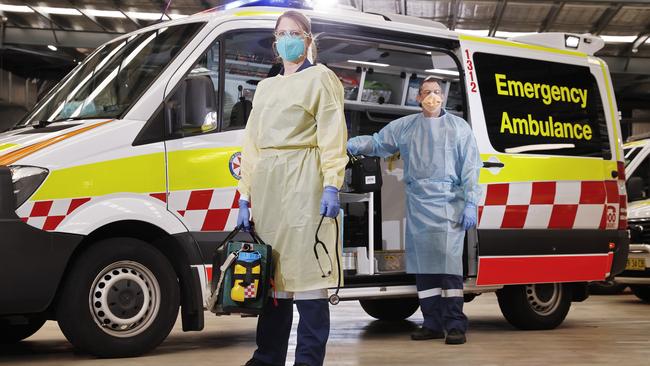
What’s more exhausting and stressful than the cleaning is the constant awareness that they could contract the virus, as eight of their paramedic colleagues have done.
With the outbreak spreading through their area of Sydney, they treat every patient as potentially infected, and sometimes go into houses where large families are unwell.
“To me, it feels like we’re going into a hostile environment,” Mr Ryan said.
“And because it’s been cold everyone has closed up their house, so whether or not it’s right, it just feels like Covid is floating in the air, you know, sick with it.”
Both said they welcomed the rush of vaccinations, which they believe has been effective — along with their PPE — in protecting them from infection.
Vaccines do not stop Covid transmission but are highly effective in preventing death or serious illness from the virus.
“I actually started testing it to make sure that we weren’t taking (the virus) home,” Ms Batten said after the pair was vaccinated in March.
“We were getting tested on our days off to make sure that after we’d been with a positive patient that our PPE was working for us.
“That gave me a lot of reassurance, to know that I was testing negative week after week, even though I’d been into these houses and been stuck in the back of the ambulance with people.”
A recent job drove home just how well the vaccines were working, Mr Ryan said.
“We had a young woman recently around the corner from here and she was the last one in her family, in her house, except her grandfather, to get ill,” he said.
“The grandfather was double-vaccinated and he was the oldest one in the family and the only one who didn’t get sick.
“And that’s not the only time where we’ve gone to a house and the only one not to get sick is the one who is vaccinated.”
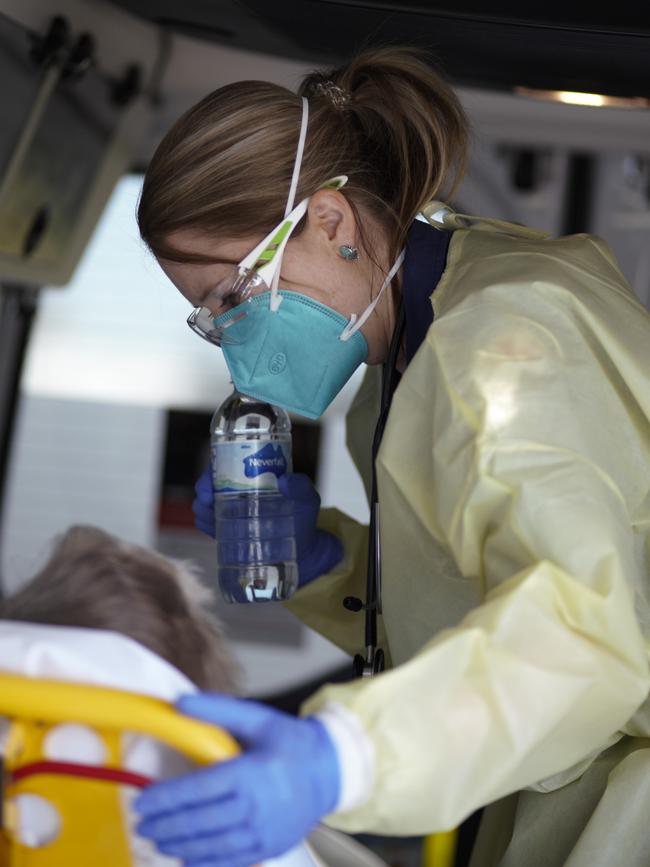
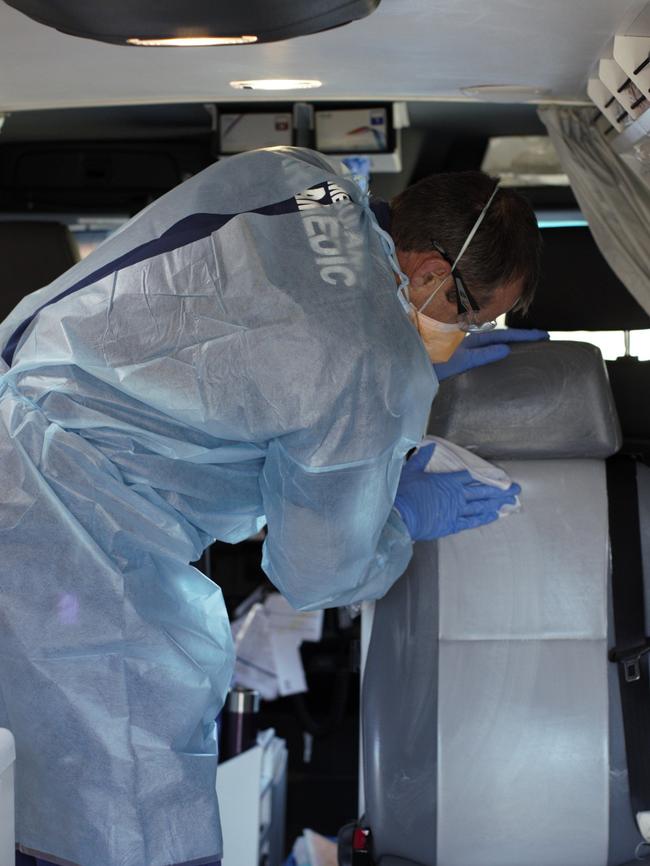
Mr Ryan said he respected people’s right to choose not to get jabbed, but hoped they would.
“I can’t see any other way that society can function with this virus if we don’t have this other level of protection, and our hospitals really won’t cope,” he said.
Throughout their shifts, the paramedics wear tight face masks, eye shields and plastic gowns over their uniforms.
“It is hot and uncomfortable and it makes my face just ache. It’s buried into the bridge of my nose and it’s sweating in my eyes,” said Ms Batten, 42, a mother of three from southwest Sydney.
“It’s pretty awful, you feel like you’re going to faint sometimes because you are hot and uncomfortable, but you’ve got to do what you got to do.
“This climate we are in, I’ve never felt anything like it before.
“The anxiety and fatigue and just the weight of it is it’s almost overwhelming.”
Adding to the strain was a sense of panic in the community and people calling triple-0 for help in non-urgent situations.
“If you’ve just got a sore throat or if you’ve got a runny nose or if you kicked your toe last week, then you need to find another way, because calling ambulances for things that are trivial just chews up the limited amount of resources that are left,” Ms Batten said.
“And if we can truly help those people who are suffering from Covid, we need to try to change the way that we respond to the jobs, because far too often I think we’re getting dragged into doing something we don’t need to be.”
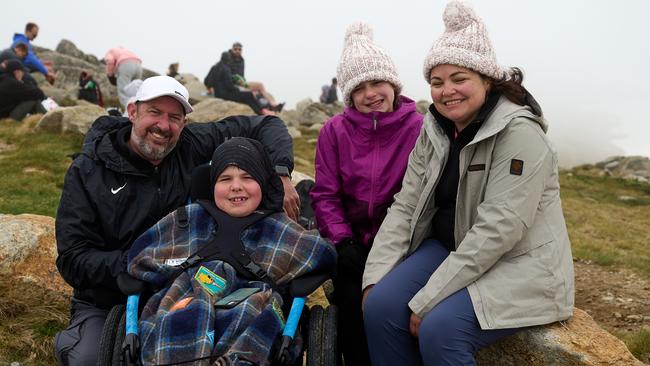
For Mr Ryan and his nurse wife Belinda, who also have a daughter Caitlyn, 11, the issue of taking home the virus has taken a particular urgency as they try to keep their family safe.
“We both understand the risks,” Mr Ryan said.
“Our kids definitely do not go to school and they don’t go out.
“Me and my wife obviously take every precaution when we are in environments of exposure. So we rarely go to the shops.
“We do everything we can (at work). We put all the protections on. We follow our policies and processes. And I go home and shower and hope I didn’t bring it in the door with me.”
Got a news tip? Email weekendtele@news.com.au

